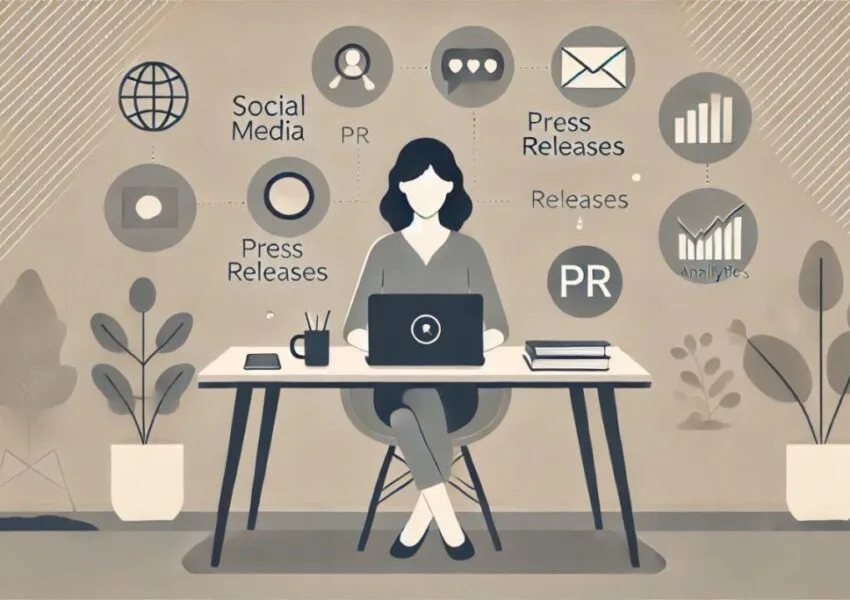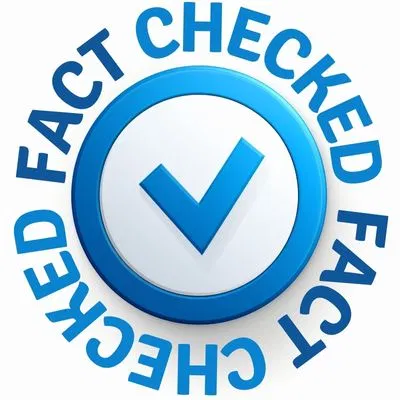A Beginner’s Guide to Digital PR

Published December 10, 2024
Digital PR is a powerful marketing strategy focused on boosting a brand’s visibility online. While traditional PR involves getting mentions in newspapers, radio, or TV, digital PR leverages online platforms to reach a wider audience. The primary goal is to generate more awareness, drive traffic, and ultimately grow sales. In simpler terms, it’s about using digital spaces to make your brand unmissable.
But what sets it apart from traditional PR? Unlike the old-school approach, digital PR is measurable. You can track clicks, shares, and conversions to see what’s working. If you’re curious to dive deeper, check out this helpful resource on what is digital PR.
The Evolution of Digital PR
Digital PR has come a long way. A decade ago, companies were more concerned with getting printed in newspapers. Today, it’s all about getting your brand featured on high-traffic websites and social media. The shift is driven by the rise of online news sources and the decline of print media.
Businesses realized they could reach thousands of potential customers online instantly. This change made digital PR essential for modern brands. Today, it’s not just about awareness but also about building authority in your industry. Correct Digital, a full-service online marketing agency, uses this evolution to help clients generate leads through platforms like Google, Facebook, and LinkedIn.

How Digital PR and SEO Work Together
Digital PR and SEO go hand in hand. SEO focuses on optimizing your website to rank higher on search engines like Google. Digital PR supports these efforts by earning high-quality backlinks, which signal to search engines that your site is credible.
Think of it like this: if a top publication links to your site, Google sees that as a vote of confidence. This increases your chances of ranking higher in search results. At Correct Digital, we combine digital PR with SEO to generate organic leads and improve our client’s search engine rankings.
The Digital PR Spectrum
When planning a digital PR strategy, it’s important to understand its spectrum. Imagine it like a pyramid:
- Hygiene Content includes blog posts, social media updates, and regular newsletters. It’s the foundation for maintaining visibility.
- Hub Content: These are in-depth articles, guest posts, and influencer collaborations that help position your brand as an expert.
- Hero Content: These are your big campaigns that attract massive attention, like interactive quizzes, viral videos, or trending challenges.
Your strategy needs a balance of all three to succeed. Correct Digital, for instance, uses engaging social media posts and interactive content to drive customer engagement.
How to Plan and Execute a Successful Campaign
Every great digital PR campaign starts with a solid plan. Here’s a simple guide to get started:
1. Understand Your Audience
Before creating content, know who you’re targeting. Use surveys and social media analytics to gather insights. This helps tailor your messaging to fit your audience’s interests.
2. Set Realistic Goals
Identify what you want to achieve. Are you aiming to increase traffic, generate leads, or build brand awareness? Setting clear KPIs helps track your progress and ensures you stay focused.
3. Build Key Relationships
Networking is crucial in digital PR. Establish connections with journalists, influencers, and bloggers. These relationships can result in valuable mentions for your brand. Correct Digital excels at building these connections to get clients featured on top sites.
4. Plan Your Content
Content is king. Brainstorm creative ideas that align with your goals. Whether it’s a press release, a blog post, or a social media campaign, ensure your content is engaging and relevant.
5. Measure and Analyze Results
Track key metrics like clicks, backlinks, and social shares. Tools like Google Analytics and Ahrefs can help measure success. Regularly reviewing these metrics allows you to refine your strategy for better results.
The Relationship Between PRs and Journalists
Journalists and PR professionals need each other. Journalists rely on PRs for stories, while PRs need journalists for coverage. Building these relationships takes time. Pitching relevant stories and responding quickly to journalist requests are crucial. Over time, this can lead to repeat opportunities for your brand.
Correct Digital, for instance, uses these relationships to amplify its clients’ reach, securing placements in high-authority publications. This boosts brand credibility and supports SEO efforts.
How to Measure the Results of Your Work
Digital PR is measurable, unlike traditional PR. Here are some ways to gauge success:
- Backlinks: High-quality backlinks improve your site’s domain authority.
- Referral Traffic: Check if your mentions are driving traffic to your site.
- Social Engagement: Track likes, shares, and comments to measure your campaign’s reach.
- Conversions: Measure how many leads or sales your digital PR efforts generated.
At Correct Digital, we track all these metrics to ensure our clients get the best return on their investment.
Examples of Great Digital PR Campaigns
Some successful campaigns use creative storytelling to capture attention. For example, a campaign analyzing the cost of living in fictional Game of Thrones locations received national coverage. Another campaign by Correct Digital featured a unique study that went viral on social media, generating thousands of leads for their client.
Top Tools to Support Your Career in Digital PR
To excel in digital PR, you need the right tools:
- BuzzSumo: Great for finding trending topics and identifying influencers.
- Google Analytics: Helps track traffic and conversions.
- HARO (Help a Reporter Out): Connects you with journalists looking for sources.
- Ahrefs: Excellent for backlink analysis and keyword research.
Correct Digital uses these tools to optimize their clients’ digital PR strategies, ensuring maximum exposure and engagement.
FAQs
What is digital PR?
Digital PR is an online strategy focusing on increasing brand visibility and authority through digital platforms.
Why is digital PR important?
It helps brands reach a broader audience, boost SEO, and generate leads more effectively than traditional PR methods.
How does digital PR improve SEO?
High-quality backlinks from reputable sources enhance a website’s domain authority.
Can small businesses benefit from digital PR?
Absolutely. Digital PR is cost-effective and can significantly boost a small business’s online presence.
What’s the difference between digital PR and traditional PR?
Traditional PR focuses on offline media, while digital PR leverages online platforms, making it more measurable and scalable.
Final Thoughts
Digital PR is a must-have strategy for brands looking to thrive online. Whether you’re a startup or a well-established business, investing in digital PR can elevate your visibility, generate leads, and build authority in your industry. At Correct Digital, we specialize in digital PR to help clients achieve their marketing goals. From social media management to generating organic leads, we have the expertise to make your brand unmissable.
If you’re ready to take your business to the next level, explore our services at Correct Digital. Let’s make your brand the talk of the town.
Hire The Digital Marketing Experts
We take online businesses and turn them into online empires by employing smart digital marketing strategies. Our team of experts are trained in a myriad of marketing skill including SEO to help you rank higher in search results, and ad management to ensure your message gets seen by the people you want. Need a business website that attracts business? We also specialize in website design and online sales optimization to help your business grow like never before.

This Content Has Been Reviewed For Accuracy By Experts
Our internal team of experts has fact-checked this content. Learn more about the editorial standard for our website here.

About The Author
Hi, I’m Corinne Grace! As an experienced writer holding a bachelor’s degree from Riverside College, I excel in creating articles supported by thorough research. Specializing in a wide range of topics like marketing and law, I craft engaging stories that connect with my readers. I continuously work to refine my skills to adapt to the ever-changing digital world.



